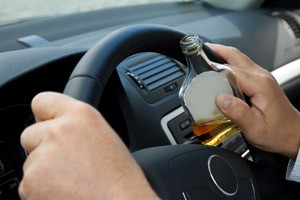 Traditionally, after a police officer makes a legal stop of your vehicle – such as a traffic stop for speeding or running a red light – he or she still cannot search your vehicle without a warrant unless or she can show that there is probable cause to believe the search will turn up evidence of criminal activity, like possession of marijuana or open alcohol containers. If you are the driver of a commercial vehicle, however, the law works a bit differently.
Traditionally, after a police officer makes a legal stop of your vehicle – such as a traffic stop for speeding or running a red light – he or she still cannot search your vehicle without a warrant unless or she can show that there is probable cause to believe the search will turn up evidence of criminal activity, like possession of marijuana or open alcohol containers. If you are the driver of a commercial vehicle, however, the law works a bit differently.
The Fourth Amendment and Vehicular Searches
Under the Fourth Amendment to the United States Constitution, you have a right to be free from warrantless searches or seizures, unless there is a legal reason for the search to occur. When it comes to private passenger vehicles, this means that a police officer cannot just search your car whenever you get pulled over, especially if the reason you are pulled over is something like speeding, because there is no reason for the officer to believe that anything inside your vehicle has anything to do with why you were pulled over.
However, if you are in a commercial vehicle, there is an exception to the Fourth Amendment right, because the law allows for searches of places related to a “highly or pervasively regulated industry.” Commercial trucking is now recognized in New Jersey as a pervasively regulated industry, and rules exist relating to all aspects of the trucks and vans used to transport or ship goods and equipment. This means that a police officer can stop and search a commercial truck, in order to make sure that the vehicle complies with federal regulations. This can include making sure that cargo is properly secured or certifying that the size and weight restrictions are followed. The trailer portion of a tractor trailer is one area in particular that a police officer is permitted to inspect.
Limits to the Search of a Commercial Vehicle
A police officer still does not have an absolute right to search commercial vehicles – there are limits to what the officer can search. A warrantless search of a commercial vehicle must still be reasonable, and the driver or owner of the vehicle still has a right to some privacy.
Therefore, in the case of State v. Pompa, the Court decided that truckers can reasonably expect searches of their tractor trailers to ensure the truck is in compliance with regulations, but the driver is entitled to more privacy when it comes to the sleeper-cabin portion of a vehicle. While a police officer is permitted to inspect a sleeper-cabin area to determine if the area is safely secured, Pompa determined that a police officer’s search of a driver’s closed closet inside of the sleeper-cabin on a tractor trailer to be unreasonable and impermissible. Based on Pompa and other cases, a police officer should not be permitted to search a closed closet, or briefcase, or other area belonging to the driver or owner of a commercial vehicle, when those places have nothing to do with commercial trucking regulations.
Of course, if a police officer sees evidence of criminal activity in “plain view” while he or she is conducting an otherwise legal inspection, that can create probable cause for the police officer to continue looking in an area where he or she would not normally be allowed to search.
New Jersey DUI/DWI Attorney Edward M. Janzekovich Can Defend You if You Are Charged with Criminal Possession
If you or someone you know is charged for any crime relating to driving under the influence of alcohol or drugs, or with possession of drugs or marijuana, it is extremely important to contact an experienced DUI/DWI attorney who can explain what rights you have in your specific situation. If you go to court, an experienced lawyer can also make sure you get the best result possible and can make all the difference. To speak with an experienced New Jersey DWI/DUI lawyer about your situation, call us at 732-257-1137 or contact us online today. We serve clients throughout the state of New Jersey.



